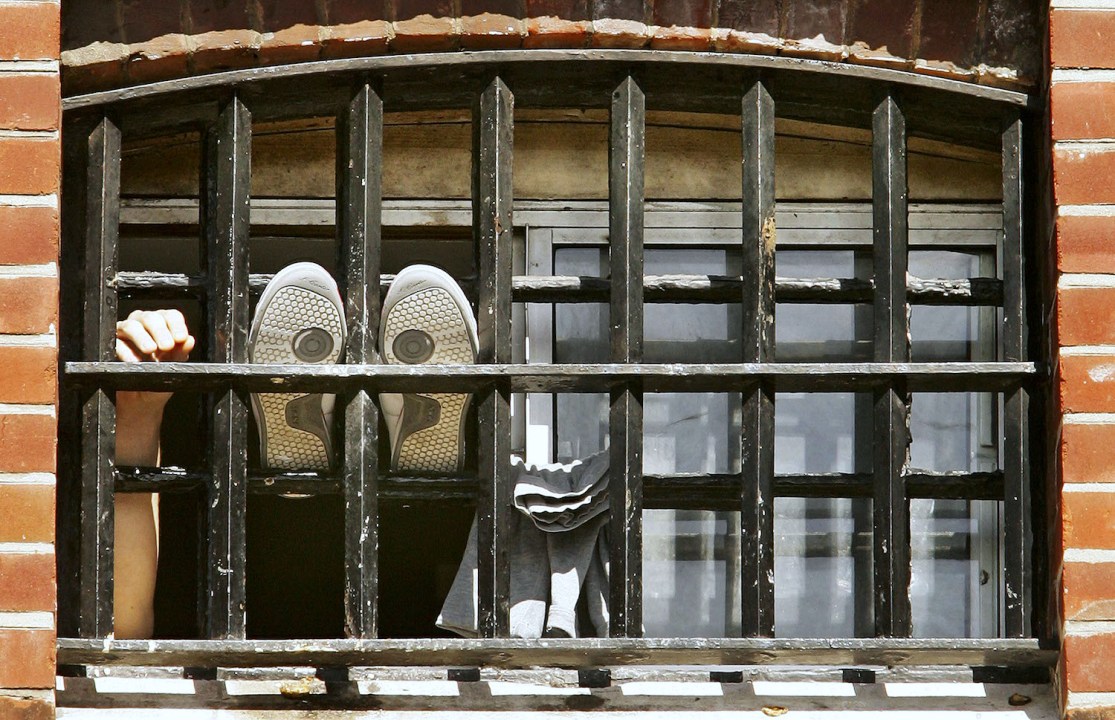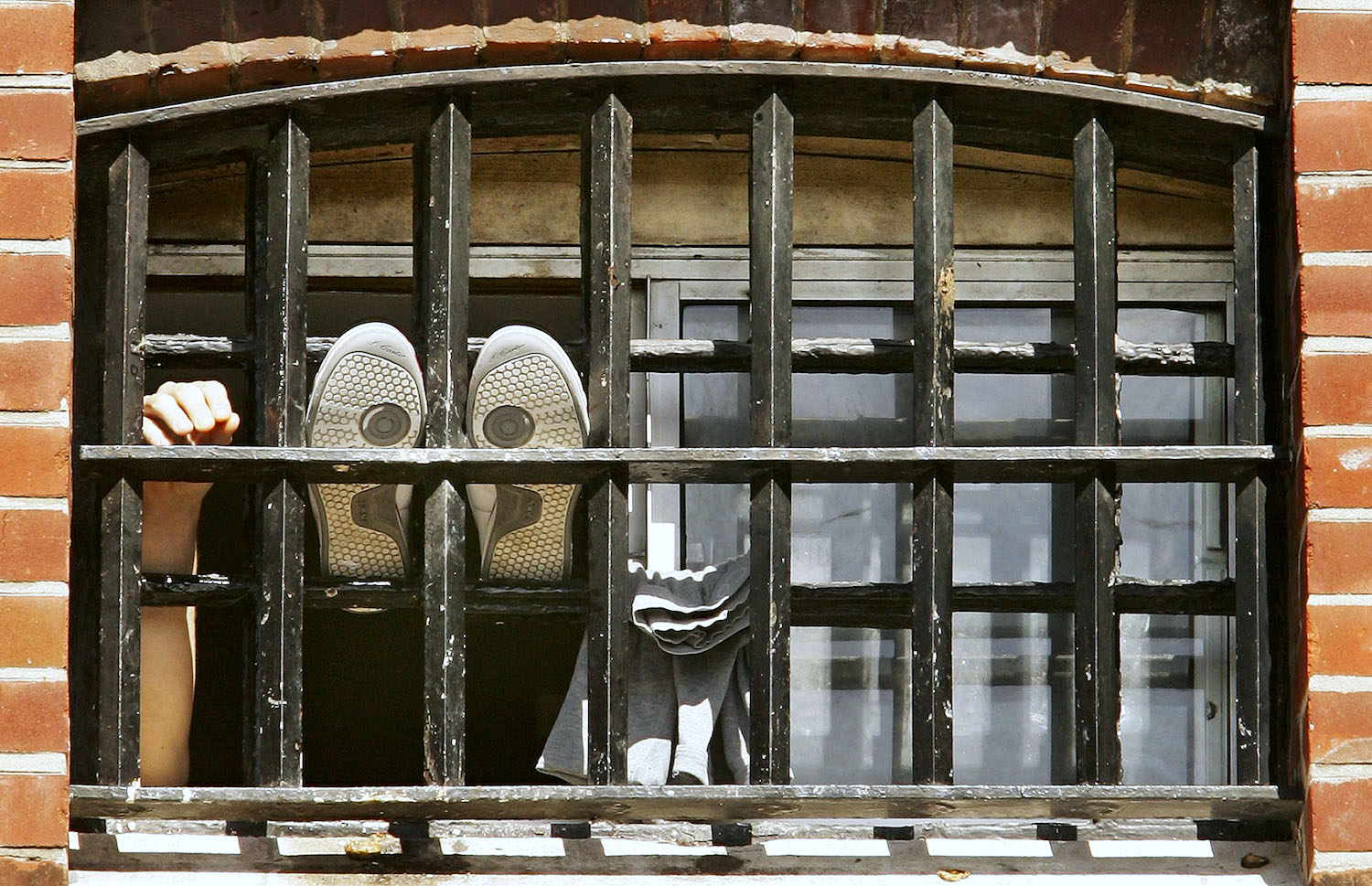The former prime minister Sir John Major has suggested the UK need not be banging up quite so many people. Lamenting the highest incarceration rates in western Europe, Sir John said he found it ‘hard to believe we British are uniquely criminal’. Of particular concern, he argued, was the sheer volume of non-violent offenders who end up behind bars: of the 43,000 people imprisoned between 2021 and 2022, more than 60 per cent had committed crimes with no element of violence. Sir John questioned whether custody was the correct disposal in all of those cases.
An estimated 17,000 children in the UK have a mother in prison
It’s easy to criticise the elder statesman as bleeding-heart and out-of-touch. His views are at odds with public opinion and run counter to our punitive instincts when we hear about terrible crimes and seemingly lenient sentences. Even The Spectator, a journal of the metropolitan right, has published two pieces in recent days heaping opprobrium on the former prime minister. ‘You really have to wonder what planet he is living on,’ one of these broadsides fumed, while another predicted his speech to the Prison Reform Trust would ‘give comfort to the criminal community’.
When Sir John places a question mark over our reliance on custodial sentences, we should listen. During his time in Downing Street, the prison population exploded in England and Wales, with an additional 24,200 people put behind bars between 1993 and 1998, a jump in custody rates from 16 to 25 per cent. Like Joe Biden, another politician who spent the 1990s riding the tough-on-crime wave, Sir John has come to rethink some of the old certainties. He observes that while prison is supposed to be about the loss of liberty, ‘the prisoner may lose much else besides: their job, their home, their relationships’. That represents ‘a high cost – not only for the prisoner, but for society as a whole’, a cost that ‘may not be justified’.
Cutting so many men off from the social institutions that condition good behaviour and then releasing them back into the community may see them return to a life of crime. That, Sir John concludes, ‘is in no one’s interest – and especially not the public at large’. To this end, he has reached a conclusion that would have been unthinkable during his time in No. 10: that ‘many short sentences are pointless and that a non-custodial sentence would be more effective and, perhaps, more fair’. In Scotland, there is already a presumption against handing down sentences of 12 months or fewer, but a Conservative thinking along these lines is a significant development.
It is an opportunity to rethink not only the value of short sentences but our entire approach to prison. Our ambition should be for a criminal justice system built around evidence and ethics, with the social costs of prison considered alongside the social costs of crime and with punishment –tempered by respect for human dignity. This might seem a hard sell. Public opinion on crime ranges from bang-‘em-up to string-‘em-up. That does not mean we should ignore public opinion but we should balance it against other considerations.
Successful criminal justice reform must begin by acknowledging what the public wants: punishment, incapacitation and, if possible, deterrence. These are legitimate, even natural, aims but parts of them can still be satisfied in a reformed system, without the same drawbacks of the current regime. Reform should be pragmatic. We need only look to several major US cities to see where anti-carceral chic leads. Instead of ideological strutting, we should present the evidence and ask questions about it.
The UK has the third-highest prison population in Europe. Only Russia and Turkey jail more people than we do. Does this make us feel particularly safe? Apparently not. What level of incarceration would allay our fears? Or are there ways to do this without over-reliance on prison?
The overall reoffending rate for adults is 31 per cent but this leaps to 54 per cent among those released after sentences of 12 months or fewer. Do short sentences reduce crime or might they contribute to more of it? Drug offenders are the third-largest cohort in the prison population and more than one in five of them reoffend. Might socially alienating these people through custody further narrow their opportunities upon release, sending them back to drug offending? Might incarceration function as an inadvertent trade school by concentrating large numbers of drug offenders under one roof where they can learn new criminal skills, techniques and schemes?
Indecent and undignified conditions are a fact of life in British prisons
Almost one-fifth (17 per cent) of female prisoners are serving short-term sentences. An estimated 17,000 children in the UK have a mother in prison. Do we believe this is a moral use of the criminal justice system and its resources? What consideration should be given to the social costs of this situation? Could at least some of these offences not be better addressed by a non-custodial penalty that doesn’t wreak havoc on family life?
The overall cost of a prison place was £47,617 in 2021, with the outlay per prisoner jumping £2,893 in real terms on the previous year. The annual prison budget is £3.2 billion. How much of this could be more effectively spent on community penalties or invested in tackling contributing factors to certain crimes? Is public appetite for imprisonment matched by public appetite for paying higher taxes to fund it?
There were 662 incidents of self-harm per 1,000 prisoners in 2021 and 148 prisoner-on-prisoner assaults. The three most common mental health conditions recorded among inmates are anxiety/depression, psychosis and personality disorder. Indecent and undignified conditions are a fact of life in British prisons. In February, I wrote about one women’s prison, Eastwood Park, where inmates were held in blood-splattered cells and reduced to sharing underwear while one cellblock had been condemned as a fire risk. Are we satisfied with these conditions? How much are we prepared to spend to make prisons safe and healthy? Or will we wait until a court somewhere eventually forces us to remedy the situation at much greater expense? Sir John Major has started a long-overdue debate. He deserves a hearing but his detractors are too busy sneering.








Comments